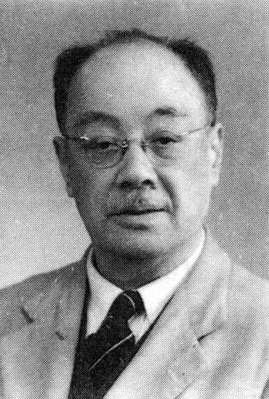Yu Yan (physician)
Yu Yan was a prominent figure in the field of traditional Chinese medicine (TCM), whose contributions have left a lasting impact on the practice and understanding of medicinal sciences in China. Born in the late Ming Dynasty and living through the early Qing Dynasty, Yu Yan's work in the development of TCM practices and his dedication to the teaching and dissemination of medical knowledge have made him a revered figure in the history of Chinese medicine.
Biography[edit | edit source]
The exact dates of Yu Yan's birth and death are not well-documented, which is common for many historical figures in TCM. However, it is known that he practiced medicine during a tumultuous period in Chinese history, a time marked by the transition from the Ming Dynasty to the Qing Dynasty. This era was characterized by significant social, political, and cultural shifts, which inevitably influenced the practice and development of traditional Chinese medicine.
Yu Yan was not only a physician but also an avid scholar. He dedicated a significant portion of his life to studying the classical texts of Chinese medicine, such as the Huangdi Neijing (The Yellow Emperor's Classic of Medicine) and the Shang Han Lun (Treatise on Cold Damage Disorders). His deep understanding of these texts, combined with his practical experience in diagnosing and treating patients, allowed him to make substantial contributions to the field.
Contributions to Traditional Chinese Medicine[edit | edit source]
Yu Yan's contributions to traditional Chinese medicine are manifold. He is best known for his innovative approaches to diagnosis and treatment, particularly his emphasis on the integration of theoretical knowledge with clinical practice. Yu Yan believed that a deep understanding of the classical texts was essential for effective medical practice, but he also argued that this knowledge needed to be applied flexibly and creatively in response to the specific conditions of each patient.
One of Yu Yan's significant contributions was his work on the differentiation of syndromes, a fundamental aspect of TCM that involves analyzing and categorizing the patient's symptoms and signs to arrive at a diagnosis. His methods improved the accuracy of diagnosis and the effectiveness of treatment plans.
Furthermore, Yu Yan was a prolific writer, and although many of his works have been lost over time, those that survive offer valuable insights into the practice of TCM during his lifetime. His writings not only include medical treatises but also case studies and essays on the philosophy of medicine, reflecting his holistic approach to health and healing.
Legacy[edit | edit source]
Yu Yan's legacy in the field of traditional Chinese medicine is enduring. He is remembered not only for his contributions to medical practice and theory but also for his role as a teacher and mentor to future generations of physicians. His emphasis on the integration of theory and practice, along with his innovative approaches to diagnosis and treatment, continue to influence TCM practitioners today.
In recognition of his contributions, Yu Yan is often cited in contemporary studies and discussions on traditional Chinese medicine. His work remains a subject of study for students of TCM, and his holistic approach to medicine inspires healthcare practitioners both within China and around the world.
See Also[edit | edit source]
Navigation: Wellness - Encyclopedia - Health topics - Disease Index - Drugs - World Directory - Gray's Anatomy - Keto diet - Recipes
Search WikiMD
Ad.Tired of being Overweight? Try W8MD's physician weight loss program.
Semaglutide (Ozempic / Wegovy and Tirzepatide (Mounjaro / Zepbound) available.
Advertise on WikiMD
WikiMD is not a substitute for professional medical advice. See full disclaimer.
Credits:Most images are courtesy of Wikimedia commons, and templates Wikipedia, licensed under CC BY SA or similar.Contributors: Prab R. Tumpati, MD

